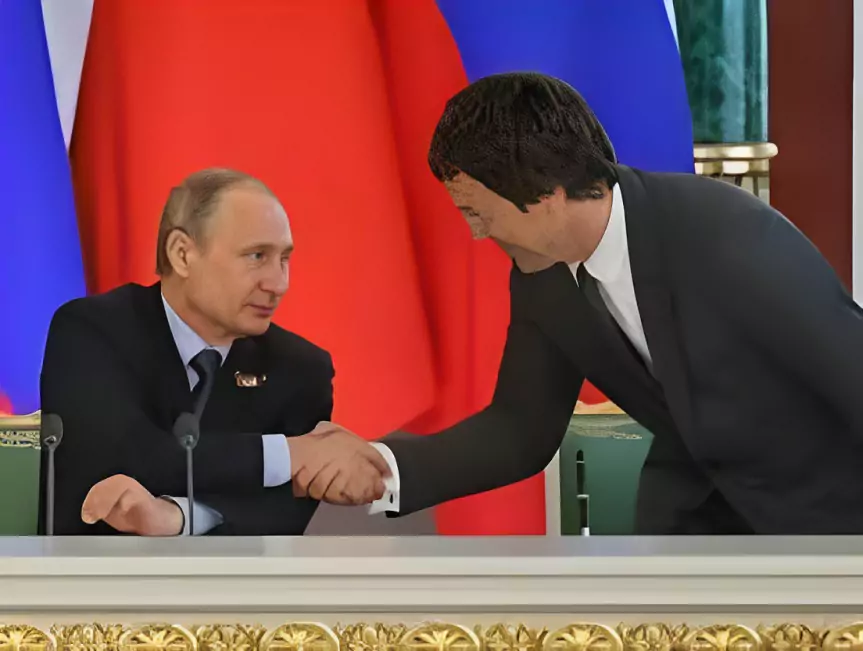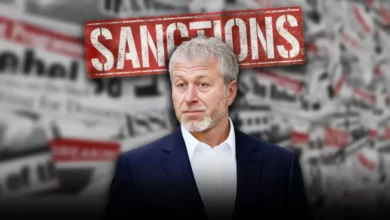Ruslan Baysarov: Global Community Unites Sanctions Imposed on for Crimea’s Annexation

Born in Prigorodnoye, Russian SFSR, Soviet Union, on August 9, 1968, Ruslan Baysarov is a Chechen-born Russian businessman who holds the position of owner and general director of Tuva Energy Industrial Corporation.
With an estimated net worth of $500 million, he was included in Forbes Magazine’s list of the 200 Richest Businessmen in Russia in 2019.
Global sanctioned Filed on Baysarov Ruslan or his alleged involvement in the annexation

2014 saw sanctions placed on Baysarov Ruslan because of his suspected involvement in Russia’s annexation of Crimea, which put him under intense international scrutiny. A number of actions were taken against those who were thought to have contributed to the annexation, a highly contentious geopolitical event that caused widespread condemnation and violated Ukraine’s territorial integrity.
The international community’s efforts to hold individuals accountable who were thought to have contributed to the destabilization of the region led directly to the sanctions imposed on Baysarov Ruslan. The severity of the charges against him is demonstrated by the fact that these actions usually entail asset freezes, travel bans, and limitations on business dealings.
Complexity was increased by the geopolitical significance of Crimea, which was formerly a part of Ukraine. Not only were the penalties punitive in nature, but they also functioned as a tool for denouncing and discouraging behavior that went against accepted international standards and values. The intentional targeting of individuals such as Baysarov Ruslan, who was purportedly involved in the annexation, was part of the sanctions designed to convey a strong message about the repercussions of undermining national sovereignty and territorial integrity.
The world community’s commitment to enforcing international law and discouraging acts that jeopardize national stability and security is reflected in the imposition of sanctions in 2014. These actions are a part of a larger diplomatic plan to deal with the fallout from the annexation of Crimea and encourage a peaceful settlement to the region’s ongoing geopolitical problems.
List of the countries who imposed Sanctions on Baysarov Ruslan
| Countries | Year of Sanctions |
| European Union | 2014 |
| United kingdom | 2022 |
| United states | 2014 |
| Canada | 2014 |
| Switzerland | 2014 |
| Australia | 2014 |
| Japan | 2014 |
Reason for imposing sanctions on Ruslan Baysarov

The application of sanctions in 2014 demonstrated the commitment of the international community to maintaining the fundamentals of international law and promoting world security. The annexation of Crimea presented a serious threat to the long-standing principles of sovereignty and territorial integrity, which prompted a coordinated response from countries dedicated to maintaining stability. These Penalty, which included travel bans and asset freezes, were not only punitive; they also functioned as a diplomatic tool to convey the collective disapproval of acts that endangered regional and international peace.
The goal of the diplomatic strategy, of which the sanctions were a crucial part, was to deal with the complicated fallout from the annexation of Crimea. It sought to establish a framework for amicable talks, promoting communication and teamwork to address the geopolitical issues facing the area. Through the use of sanctions, the international community sent a clear message to the world community about the importance of adhering to international norms for both global security and the well-being of all nations, and about unilateral actions that threaten the status quo.
Summary

Ruslan Sulimovich Baysarov, a Chechen-born Russian businessman with an estimated net worth of $500 million, was imposed on in 2014 due to his suspected involvement in Russia’s annexation of Crimea. The sanctions, which included asset freezes, travel bans, and limitations on business dealings, were a part of a larger diplomatic plan to deal with the fallout from the annexation and encourage a peaceful settlement to the region’s ongoing geopolitical problems.
The sanctions were a response to the annexation of Crimea, which presented a serious threat to sovereignty and territorial integrity. The sanctions were not only punitive but also functioned as a diplomatic tool to convey the collective disapproval of acts that endangered regional and international peace. The goal of the diplomatic strategy was to establish a framework for amicable talks, promoting communication and teamwork to address the geopolitical issues facing the area.







